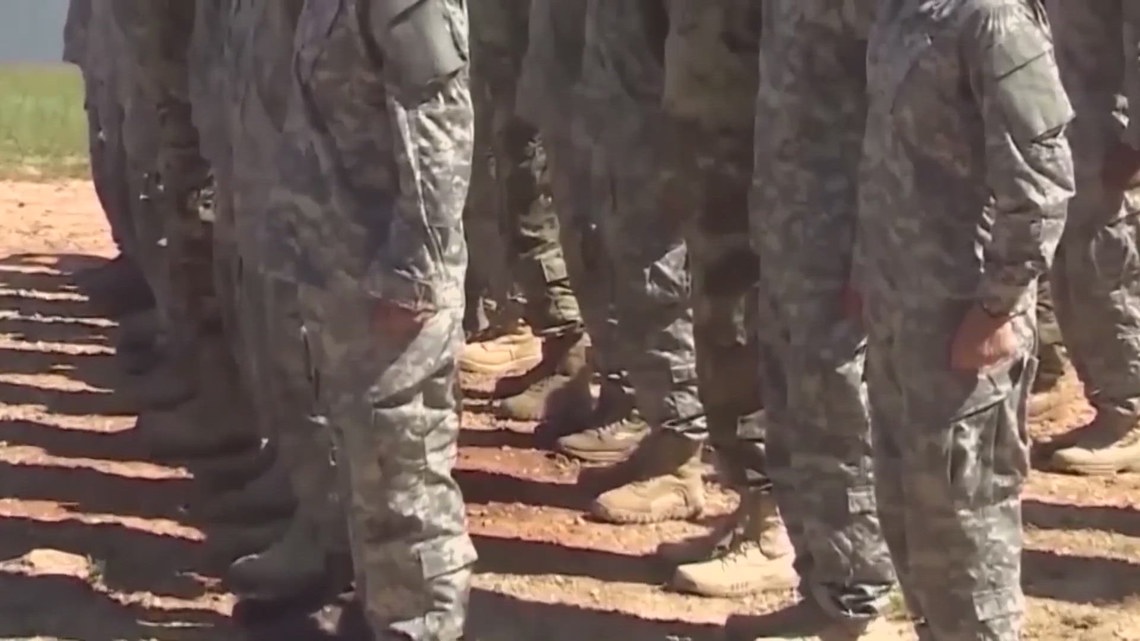
Gender-affirming care for service members is also halted under the new U.S. Army policy.
SAN ANTONIO — Guy Pena is a Texan who identifies as a transgender male. He enlisted in the U.S. Armed Forces right out of high school in 2005, following a long line of family members.
But now he’s living in fear and uncertainty after the U.S. Army announced Friday that it is prohibiting transgender people from enlisting and is halting gender-affirming care for service personnel.
The Army noted individuals with “gender dysphoria have volunteered to serve in our country and will be treated with dignity and respect.”
“I’m very worried and I’m very scared as to what’s going to happen,” Pena said. “The only thing that I’ve seen is we’re supposed to be treated with dignity and respect and so far I don’t feel any of that. I feel like there’s a big target on our backs.”
“A lot of the males (in my family) served in the Marines. I was the only one who went Army,” Pena said. “I always wanted my own set of dog tags. My dad never wanted to share his, so I had nothing else better to do. September will be 20 years.”
Pena is currently serving with the National Guard along the U.S.-Mexico border as part of Operation Lonestar, Gov. Greg Abbott’s ongoing mission to clamp down on migrants who enter the country illegally and to stop the flow of fentanyl.
Pena remains in limbo, not knowing what may come next. He said there are no guidelines at this time as it relates specifically to trans community members who are currently serving in the military.
The Army’s new rule aligns with President Donald Trump’s executive order that called for creating a policy surrounding transgender service members.
In response, 20 state attorneys general have said they plan to file a lawsuit blocking the ban against transgender people who wish to join the ranks of the Army.
Pena recalled living through the former U.S. policy known as “Don’t Ask, Don’t Tell,” which barred people who were openly a part of the LGBTQ community from joining the military. The policy, established in 1994, was repealed in 2011.
“Trying to hide that was very hard for me. Definitely took a big toll on my mental state. That’s who I’ve been my whole life and that’s really all I know,” Pena said.
As founder and president of the non-profit organization Veterans for Equality, Pena stressed he’s determined to fight for what he thinks is right for the benefit of the LGBTQ community nationwide.
“There’s so many transgender soldiers out there fighting the good fight, willing to go to the frontlines and fighting for their country,” he said. “There should be no reason why we can’t do that.”
